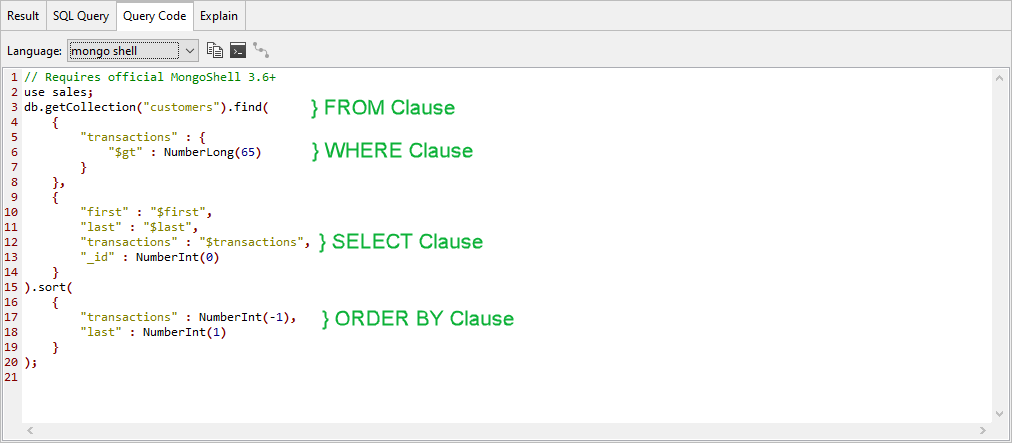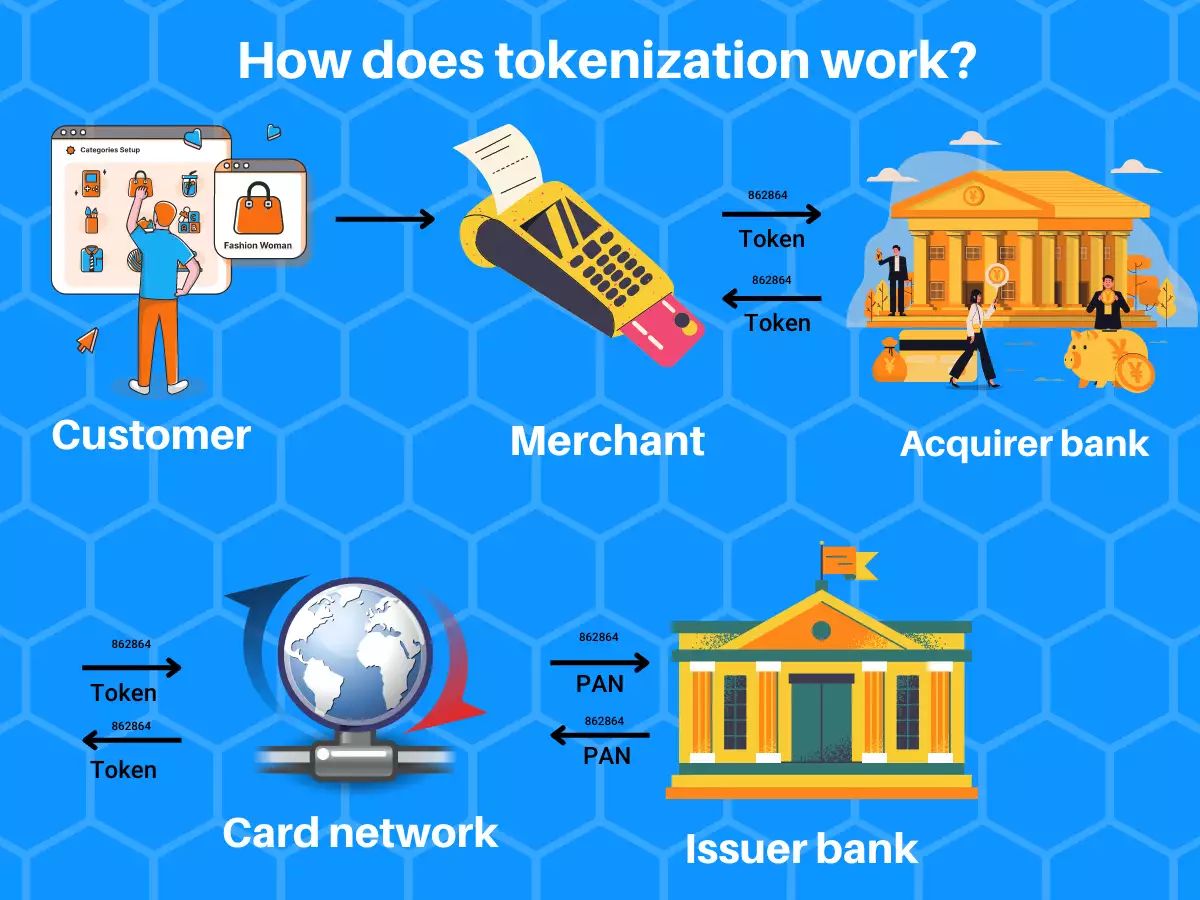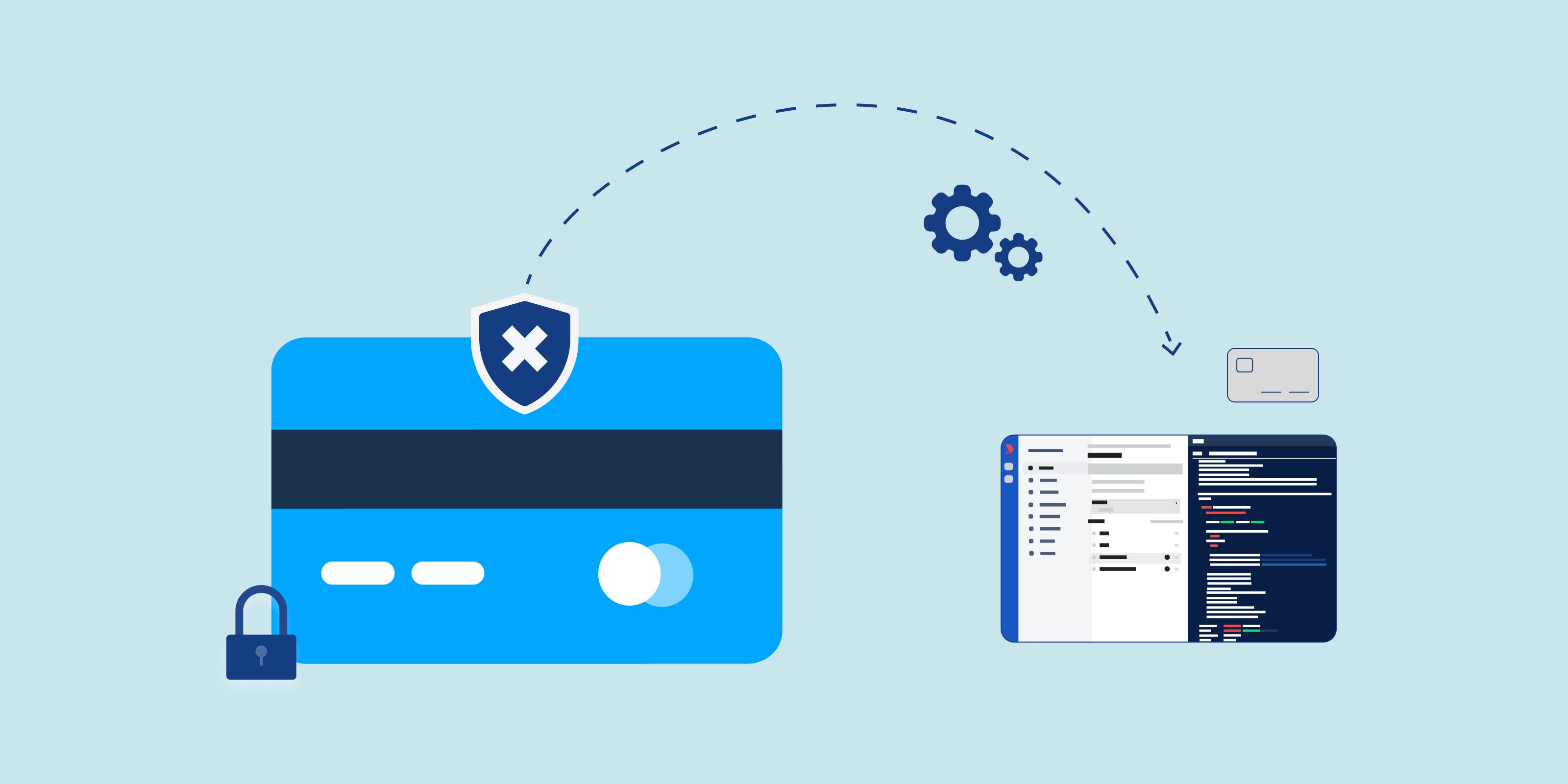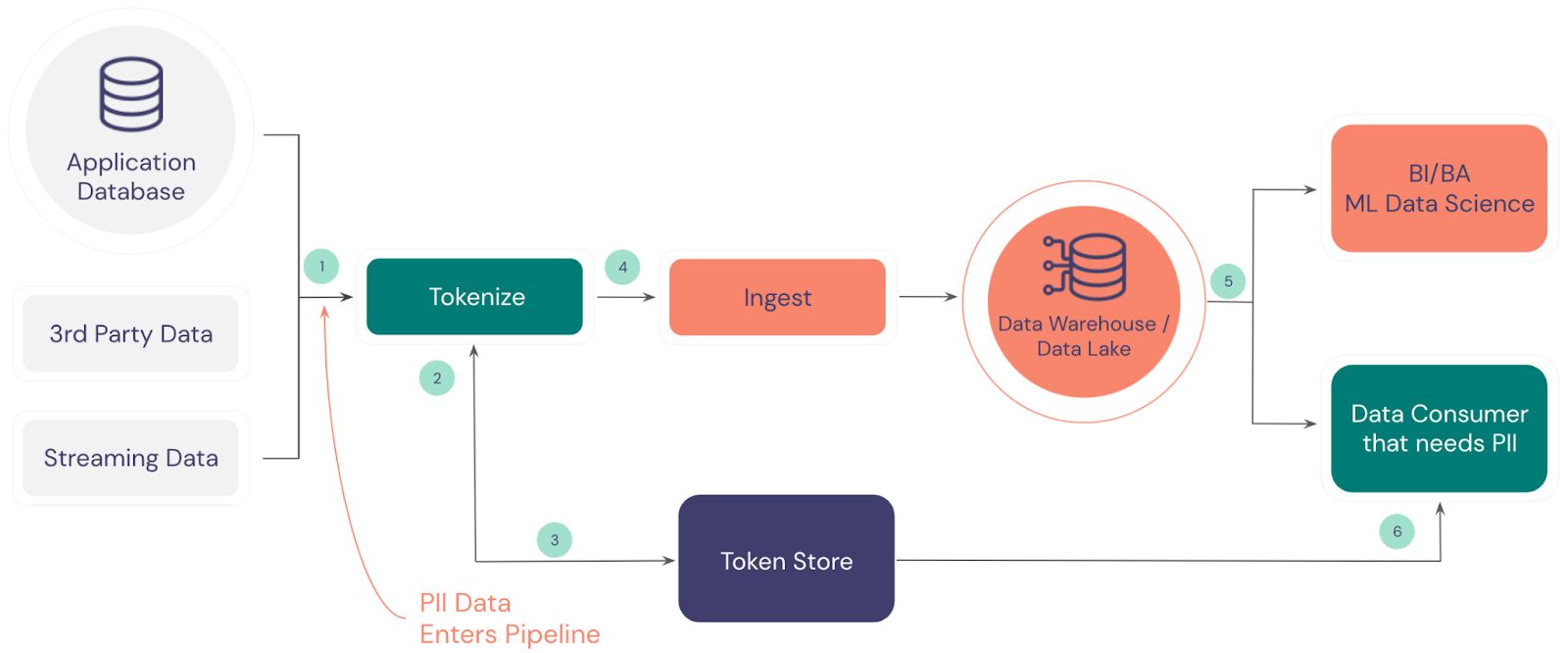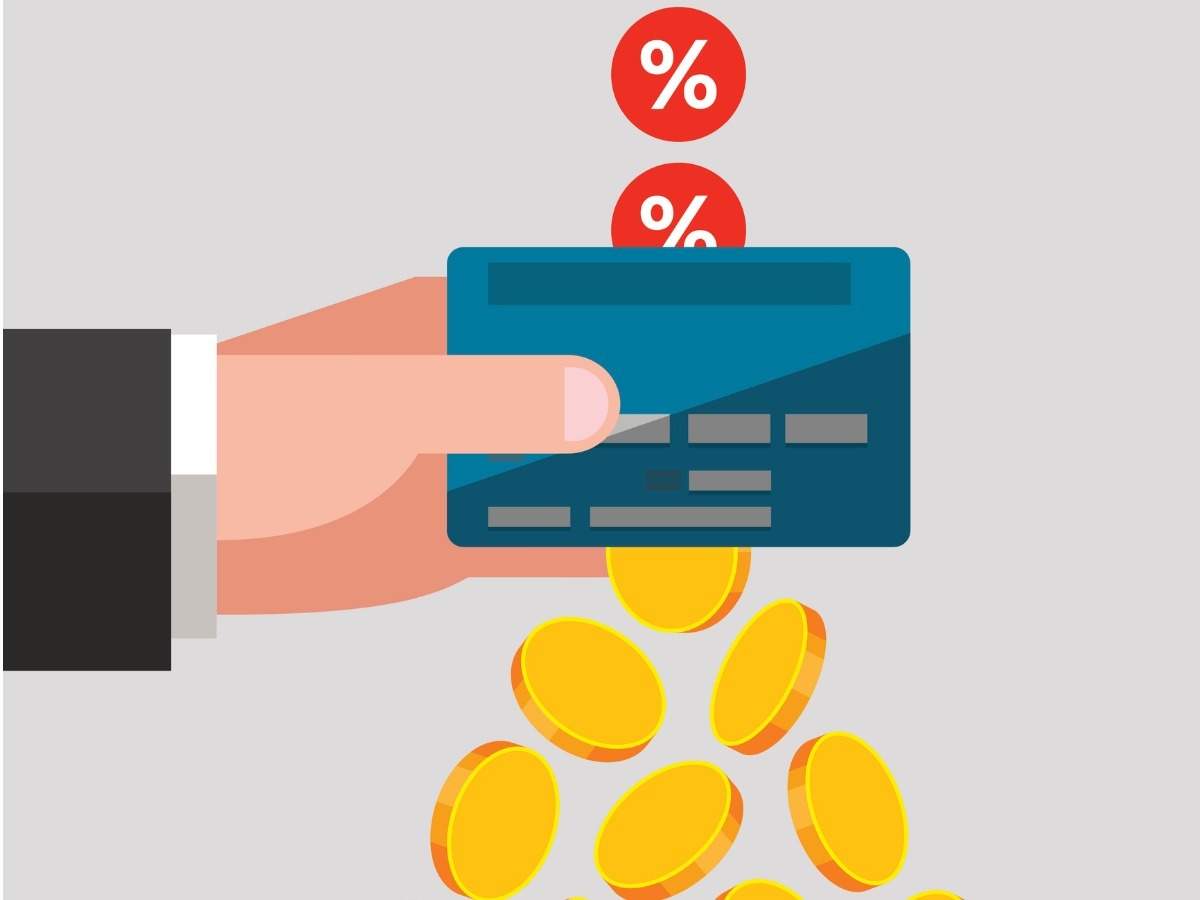Introduction
Welcome to the world of GTE Tokenization, a cutting-edge technology revolutionizing the way businesses handle sensitive data securely. In today’s digital landscape, data breaches and cyber threats are a constant concern, making data security a top priority for organizations across various sectors. Tokenization has emerged as a reliable solution to protect sensitive information, and GTE Tokenization is at the forefront of this innovative approach.
Tokenization is a process that replaces sensitive data, such as credit card numbers or personally identifiable information (PII), with unique identification symbols called tokens. By tokenizing data, the original information is no longer accessible, significantly reducing the risk of unauthorized access or loss. GTE Tokenization takes this concept to the next level, providing enhanced security and efficiency for businesses of all sizes.
With the exponential growth of digital transactions, protecting sensitive information is crucial to maintaining trust and preventing costly data breaches. GTE Tokenization offers a robust solution that not only minimizes the risk of data breaches but also streamlines operations and improves customer experience.
In this article, we will delve into the world of GTE Tokenization, discussing its benefits, how it works, and exploring its various use cases. By the end, you’ll have a comprehensive understanding of how GTE Tokenization can transform data security and how it can be effectively implemented in your organization.
What is Tokenization?
Tokenization is a data security technique that replaces sensitive information, such as credit card numbers, with unique symbols called tokens. These tokens act as placeholders for the original data, allowing businesses to securely store and transmit sensitive information without exposing it to risk.
When a piece of data is tokenized, it is assigned a unique alphanumeric string, which serves as a representation of the original data. This token is meaningless to anyone who does not have access to the tokenization system and the corresponding mapping information. Therefore, even if a hacker gains access to the tokens, they would not be able to reverse-engineer the token to retrieve the original data.
Tokenization differs from encryption in that it does not use a mathematical algorithm to scramble the data. Instead, tokenization simply replaces the sensitive information with a non-sensitive token. This approach eliminates the need for complex encryption keys, reducing the risk of key theft or the possibility of encryption algorithm vulnerabilities being exploited.
One of the key advantages of tokenization is its compatibility with existing systems and processes. Since tokens are used in place of original data, applications and systems that require the use of sensitive information can continue to function seamlessly without the need for major modifications. This makes tokenization a flexible and scalable solution that can be implemented across multiple platforms and applications.
Tokenization is widely used in industries that handle significant amounts of sensitive data, such as finance, healthcare, and e-commerce. It is particularly popular in the payment card industry, where it is commonly used to secure credit and debit card information.
In summary, tokenization is an effective technique for safeguarding sensitive data by replacing it with unique tokens. By implementing tokenization, organizations can reduce the risk of data breaches, enhance data security, and ensure compliance with data protection regulations.
Benefits of Tokenization
Tokenization offers numerous benefits for businesses looking to secure their sensitive data and protect themselves from data breaches and cyber threats. Here are some key advantages of implementing tokenization:
- Enhanced Security: Tokenization provides a high level of security by replacing sensitive data with meaningless tokens. Even if the tokens are intercepted, they are useless without access to the tokenization system and mapping information. This significantly reduces the risk of data breaches.
- Reduced Compliance Burden: Tokenization helps businesses comply with data protection regulations such as the Payment Card Industry Data Security Standard (PCI DSS) and the General Data Protection Regulation (GDPR). By tokenizing sensitive information, businesses can minimize their exposure to regulatory fines and legal liabilities.
- Streamlined Operations: Tokenization simplifies and accelerates business processes. Since sensitive data is replaced with tokens, companies can securely store and transmit information without the complexities associated with handling and securing the original data. This improves operational efficiency and reduces administrative overhead.
- Improved Customer Experience: Tokenization enhances customer trust and confidence by safeguarding their sensitive information. Customers feel more comfortable conducting transactions and sharing their data with businesses that have implemented tokenization. This can lead to increased customer satisfaction and loyalty.
- Fraud Prevention: Tokenization can greatly reduce the risk of fraud. Even if a token is intercepted, it is useless to fraudsters without the corresponding mapping information. This makes it extremely difficult for hackers to use stolen tokens for unauthorized transactions.
- Scalability and Flexibility: Tokenization can be implemented across various systems and applications, making it a scalable solution that can adapt to the needs of businesses of all sizes. It can seamlessly integrate with existing infrastructure, minimizing disruption and cost associated with implementation.
Overall, tokenization offers businesses a robust and versatile approach to data security. By leveraging this technology, organizations can enjoy increased protection, reduced compliance burdens, improved operational efficiency, and enhanced customer trust.
What is GTE Tokenization?
GTE Tokenization is an advanced data security solution that takes tokenization to the next level. It is a comprehensive platform that offers businesses a robust and efficient way to protect sensitive data and mitigate the risk of data breaches.
GTE Tokenization goes beyond traditional tokenization by incorporating additional layers of security and functionality. It provides businesses with a centralized and controlled environment to tokenize and manage their sensitive data effectively.
One of the key features of GTE Tokenization is its ability to tokenize and secure multiple types of data, including credit card numbers, social security numbers, bank account details, and more. This comprehensive approach ensures that all sensitive information is protected using the highest security standards.
GTE Tokenization also offers extensive customization options, allowing businesses to define their own tokenization rules and policies. This flexibility enables organizations to have granular control over their data security, tailoring the tokenization process to their specific needs and compliance requirements.
Another distinguishing feature of GTE Tokenization is its support for tokenization both at rest and in transit. This means that sensitive data can be securely tokenized both when it is stored in databases and when it is being transmitted between systems or organizations. By protecting the data at every stage, GTE Tokenization ensures comprehensive security throughout the entire data lifecycle.
In addition to its robust security features, GTE Tokenization simplifies data management and integration. It provides seamless integration with existing systems and applications, allowing businesses to tokenize data without disrupting their workflows. This eliminates the need for complex and costly infrastructure modifications.
GTE Tokenization also offers comprehensive reporting and auditing capabilities, giving businesses full visibility into the tokenization process. This facilitates compliance with regulatory requirements and provides valuable insights into data access and usage.
Overall, GTE Tokenization is a comprehensive solution that combines advanced security, customization options, seamless integration, and comprehensive reporting. It empowers businesses to protect their sensitive data effectively and maintain a strong security posture against evolving cyber threats.
How Does GTE Tokenization Work?
GTE Tokenization employs a sophisticated process to securely tokenize and protect sensitive data. Here’s an overview of how GTE Tokenization works:
- Data Identification: First, the GTE Tokenization system identifies the sensitive data that needs to be tokenized. This can include credit card numbers, social security numbers, or any other type of sensitive information specified by the organization.
- Token Generation: Once the sensitive data is identified, GTE Tokenization generates a unique token for each piece of data. The tokens are randomly generated alphanumeric strings that have no correlation to the original data. These tokens act as placeholders for the sensitive information.
- Tokenization Process: As the sensitive data is tokenized, the original data is securely stored in an encrypted format, while the corresponding tokens are generated and mapped to the original data. This mapping information is securely stored in a separate database, ensuring that the tokens can be paired with the original data when needed.
- Data Access and Usage: When a system or application requires access to the sensitive data, it makes a request to the GTE Tokenization system, providing the corresponding token. The system then retrieves the original data using the token mapping information and provides it to the requesting system/application in a secure manner. This ensures that sensitive data is only accessed by authorized parties.
- Data Storage and Transmission: Throughout the entire data lifecycle, GTE Tokenization ensures that sensitive data is protected at rest and in transit. The original data is securely stored in encrypted form, while the tokens are used for data transmission between systems or organizations. This provides an additional layer of security and minimizes the risk of unauthorized access to the sensitive information.
- Reporting and Auditing: GTE Tokenization offers comprehensive reporting and auditing capabilities. It keeps a record of all tokenization activities, providing businesses with insights into who accessed the data, when it was accessed, and for what purpose. This facilitates compliance with regulatory requirements and helps organizations monitor and analyze data usage.
By following this process, GTE Tokenization ensures that sensitive data is securely tokenized, stored, and transmitted, while maintaining the integrity and confidentiality of the information. The system allows businesses to seamlessly integrate with existing systems and applications, reducing the complexity and disruption associated with implementing data security measures.
Advantages of GTE Tokenization
GTE Tokenization offers numerous advantages for businesses seeking to protect their sensitive data and enhance their overall data security posture. Here are some key advantages of implementing GTE Tokenization:
- Enhanced Data Security: GTE Tokenization provides a high level of security by replacing sensitive data with tokens and encrypting the original data. This significantly reduces the risk of data breaches and unauthorized access to sensitive information.
- Flexible Tokenization Rules: GTE Tokenization offers extensive customization options, allowing businesses to define their own tokenization rules and policies. This flexibility enables organizations to tailor the tokenization process to their specific needs, compliance requirements, and industry standards.
- Comprehensive Data Protection: GTE Tokenization protects sensitive data both at rest and in transit. This ensures that data is securely stored and transmitted, minimizing the risk of data exposure or unauthorized access during various stages of the data lifecycle.
- Seamless Integration: GTE Tokenization seamlessly integrates with existing systems and applications, enabling organizations to implement data security without major modifications or disruptions. This reduces complexity and implementation costs associated with integrating new solutions.
- Improved Compliance: GTE Tokenization helps businesses comply with data protection regulations such as the Payment Card Industry Data Security Standard (PCI DSS) and the General Data Protection Regulation (GDPR). By implementing tokenization, organizations can reduce their regulatory burden and mitigate the risk of non-compliance.
- Efficient Data Management: GTE Tokenization simplifies data management by enabling efficient handling and secure storage of sensitive information. The ability to tokenize and store data in a centralized, controlled environment improves data organization and accessibility.
- Reduced Liability: GTE Tokenization minimizes the risk of liability associated with data breaches and cyberattacks. By implementing robust data security measures, businesses can protect themselves from financial losses, reputation damage, and legal repercussions.
- Enhanced Customer Confidence: GTE Tokenization instills customer confidence by safeguarding sensitive information. This leads to enhanced trust and loyalty, as customers feel more secure engaging in transactions and sharing their data with organizations that prioritize data protection.
GTE Tokenization offers a comprehensive data security solution that combines advanced technology, flexibility, and seamless integration. By leveraging these advantages, organizations can protect their sensitive data, ensure compliance, and enhance customer trust in an increasingly digital world.
Use Cases of GTE Tokenization
GTE Tokenization can be applied across various industries and use cases, offering a versatile solution for protecting sensitive data. Here are some common use cases where GTE Tokenization can provide significant benefits:
- Payment Processing: GTE Tokenization is widely used in the payment card industry to secure credit and debit card information. By tokenizing card data, businesses can ensure that sensitive financial information is protected during transactions, reducing the risk of fraud and data breaches.
- Healthcare: In the healthcare industry, GTE Tokenization helps protect patients’ personal health information (PHI) and electronic health records (EHR). By tokenizing sensitive data such as Social Security numbers, medical records, and insurance information, healthcare organizations can enhance patient privacy and comply with HIPAA regulations.
- Retail and E-commerce: GTE Tokenization is valuable in the retail and e-commerce sectors, where online transactions are the norm. By tokenizing customer payment information, businesses can ensure secure and seamless transactions, reducing the risk of card data theft and unauthorized usage.
- Mobile Applications: GTE Tokenization is often used in mobile applications that require the storage and transmission of sensitive user data, such as banking apps or digital wallets. Tokenizing this data ensures that it remains secure, even if a mobile device is lost or stolen.
- Cloud Storage: With the increasing adoption of cloud storage, GTE Tokenization offers a secure solution for protecting data stored in cloud environments. By tokenizing sensitive information before it is stored in the cloud, businesses can maintain control over their data and reduce the risk of unauthorized access.
- Customer Data Management: GTE Tokenization can be used to protect and manage customer data in customer relationship management (CRM) systems or marketing databases. By tokenizing customer information such as contact details, companies can ensure data privacy while still being able to analyze and utilize the data for marketing purposes.
- Financial Institutions: Banks and financial institutions can benefit from GTE Tokenization to secure sensitive customer information, such as account numbers and personal identification numbers (PINs). Tokenization reduces the risk of account breaches and financial fraud, enhancing customer trust and regulatory compliance.
- Government Agencies: GTE Tokenization is applicable in government agencies that handle sensitive citizen information, such as social security numbers or tax records. Tokenization helps protect citizen privacy and ensures compliance with data protection regulations.
These are just a few examples of the diverse use cases for GTE Tokenization. The technology can be implemented in any industry where safeguarding sensitive data is a priority. By applying GTE Tokenization, businesses and organizations can protect data, maintain compliance, and build trust with their customers.
Conclusion
GTE Tokenization is a powerful data security solution that offers businesses enhanced protection, streamlined operations, and compliance with data protection regulations. By replacing sensitive data with tokens, GTE Tokenization significantly reduces the risk of data breaches and unauthorized access to confidential information. Its robust security features, customization options, and seamless integration make it a versatile solution applicable to various industries and use cases.
Tokenization is not only a proactive measure to safeguard data but also an efficient way to manage sensitive information. By tokenizing data, businesses can simplify data storage, transmission, and handling, reducing operational complexities and improving overall efficiency.
The advantages of GTE Tokenization extend beyond just data security. It enhances customer trust and loyalty by protecting their sensitive information, which is vital in today’s digital world. Furthermore, it helps businesses comply with stringent data protection regulations, minimizing the risk of regulatory fines and legal liabilities.
From payment processing to healthcare, retail, and cloud storage, GTE Tokenization offers a versatile solution to protect sensitive data across various industries. Its broad range of use cases showcases its adaptability and suitability for securing different types of information.
Implementing GTE Tokenization is a step towards strengthening data security, reducing the risk of data breaches, and enhancing customer trust. By opting for this advanced data protection technology, businesses can stay ahead of evolving cyber threats and maintain a strong security posture.
As organizations continue to prioritize data security, GTE Tokenization stands as a reliable and efficient solution to safeguard sensitive information. By leveraging its benefits, businesses can protect their assets, maintain compliance, and establish a strong foundation of trust with their customers.









